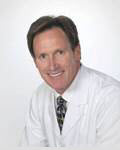We Have Dentists in Minnesota for Teeth Problems Near You
Southdale Family Dentistry
Appointments: (952) 926-6081

Gerald Cook D.D.S.
Southdale Family Dentistry
6600 France Avenue South, Suite 420
Edina, MN 55435






Dr. Cook provides secure implant dentures in the Edina area. Implant retained dentures won't slip, and are a long-lasting solution to missing teeth.
You'll talk, eat and smile with more confidence. Your self esteem will return with your new natural-looking teeth.
If you're looking for a more pleasing, silver-free smile, you'll want Edina area dentist Dr. Gerald Cook to replace your amalgam fillings with natural-looking composite fillings. Tooth-colored fillings are thought to be safer and more attractive than older silver amalgam fillings. Dr. Cook will precisely match your new tooth-colored composite fillings with the natural color of your teeth, providing you with virtually invisible fillings.
Edina area Invisalign® dentist Gerald Cook, D.D.S. is happy to provide your new clear braces. At Southdale Family Dentistry, we want you to have the straight teeth and beautiful smile you desire.
We're happy to assess your needs create your individual treatment plan for braces. You may be able to have your new Invisalign® aligners sooner than you think!
New and safe sedation dentistry with Edina area sedation dentist Dr. Gerald Cook means you can have years of dental treatments done quickly while you're lightly sedated, with little or no discomfort. If you've been putting up with discomfort, hiding your smile, or delaying scheduling dental work because you're too busy, your life is about to change. Make a sedation dentistry consultation appointment today with Dr. Cook.




More Dentists in the Edina, MN Area Near You
FAMILY AND COSMETIC GENTLE DENTISTRY LTD
13550 26TH AVE N STE 200
PLYMOUTH, MN, 55441
(763) 557-0287
Endodontic Associates Ltd
9075 Quaday Ave Ne # 103
Elk River, MN, 55330-6673
Doctor - Activate Your Free 1stDentist Directory Listing
NICOLLET DENTAL
6101 NICOLLET AVE S
MINNEAPOLIS, MN, 55419
(612) 866-8550
CHILDRENS DENTAL SERVICES
636 BROADWAY ST NE
MINNEAPOLIS, MN, 55413
(612) 746-1530



